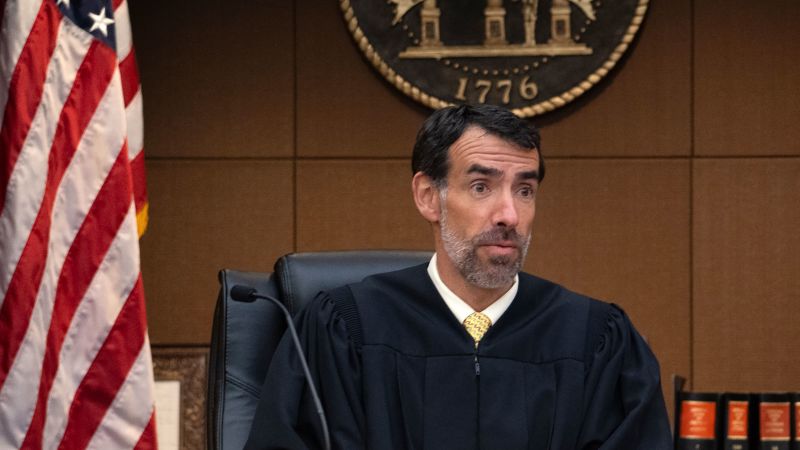A Georgia judge presiding over a lawsuit brought by State and national Democrats against the GOP-controlled Georgia State Election Board expressed concerns about a “vague” election certification rule approved by Donald Trump allies. The new rules require county election officials to conduct a “reasonable inquiry” into election results before certifying them and allow them to examine all related documentation. The judge highlighted the vagueness of the “reasonable inquiry” rule and the potential chaos it could inject into the electoral process after Election Day. He also questioned the timing of changing election rules so close to this year’s contest, raising concerns about the constantly evolving regulations.
During the trial, Judge Robert McBurney raised the issue of changing rules close to an election, citing a 2006 Supreme Court case, Purcell v. Gonzalez, which stated that rules should not be changed “on the eve of an election.” He expressed the difficulty that courts face in such situations, especially if the rules should not have been approved in the first place. The judge questioned the unreviewable window in which defective, unconstitutional rules could be issued by the election board, preventing judicial oversight due to the Purcell window. Republicans, who intervened in the case to defend the new rules, argued that the court’s hands were tied by established judicial principles.
Last month, three Trump allies on the board passed a rule requiring counties to hand-count the number of ballots cast at polling places on Election Day. Democrats have sued to block this new rule, citing concerns about disrupting the certification process, which must be completed by November 12. While the judge acknowledged the need for clarity on the “reasonable inquiry” rule, he stated that the “examination rule” appeared permissive and did not present uncertainty as it allowed access without obligation. Democrats are still concerned about county officials refusing to certify results under the new rules and continue to push for a ruling to prevent this scenario.
The case is a closely watched pre-election dispute, with Democrats warning of potential chaos if the rules are allowed to stand, posing a threat to the certification process in a critical battleground state. Both sides are likely to appeal any adverse ruling against them, indicating that the judge’s decision may not be the final say in the matter. The lawsuit, backed by Vice President Kamala Harris’ campaign, reflects concerns among Democrats about potential attempts to overturn this year’s election results if Trump loses Georgia again. At the heart of the case are claims that the new rules conflict with state law mandating certification of election results by a specific deadline, giving county officials broad authority to delay certification in search of irregularities.
The lawsuit challenges the State Elections Board’s authority in handling fraud or election misconduct allegations, arguing that local partisan officials should not have discretion over certification. The plaintiffs seek confirmation that the duty to certify results by the statutory deadline is mandatory and aim to invalidate the new rules if state law does not allow for withholding or delaying certification. However, the attorneys for the rule’s challengers argue that concerns about potential future contingencies do not meet the legal threshold required to bring the lawsuit. The Republican National Committee and state GOP party, intervening to defend the rules, also claim that there is no live controversy for the court to resolve regarding the election certification dispute.


